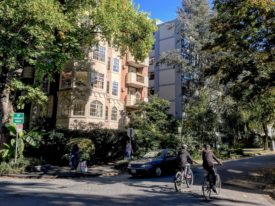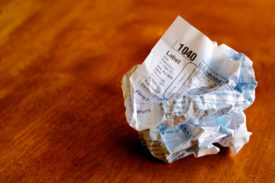Eric H:
Sightline staff are well-acquainted with the battle of the office candy jar–but could sweets be worse than we think they are? The New York Times Magazine takes a look at whether or not sugar is toxic.
Also, if you’ve got free time in Seattle next week, check out Seattle’s GoGreen conference to hear some smart people talk about sustainable business.
Eric dP:
It was as a dry spell of a reading week for me. The only bit worth highlighting was the round robin of ranting—from Roger Valdez, Martin H. Duke, and Michael van Baker—about Governor Gregoire’s use of the phrase “social engineering” in the New York Times.
Clark:
Next Wednesday will mark the one-year anniversary of the BP oil spill. Oh, yeah, remember that? Wasn’t that supposed to be a big deal—a signal the end of America’s love affair with oil or something?? How quickly memory fades.
Just in time for tax day, the White House releases a new “taxpayer receipt” website, showing what we actually spend money on (hint—mostly social security, defense, and health care for the elderly). It’s a useful information in a way, but is a “receipt” really an effective metaphor? It makes government seem like a gumball machine—we put in money, it gives us stuff. And that, in turn, paints citizens as both as outside the government—passive recipients of whatever the gumball machine happens to give us. That’s kind of the opposite of the democratic ideal, where government is the way we solve our shared problems, and budgets are something that everyone has a role in shaping. So I grade it A for useful information, D for framing.
The New Yorker on the outsized role of gas prices on our psyches. “Last month’s drop in consumer confidence was attributed almost entirely to the spike in gas prices…. Dan Ariely, a behavioral economist at Duke, has even argued that the way we buy gasoline—standing at the pump and watching the dollars pile up—is inherently disheartening.”
Anna:
Can Los Angeles pull off 30 years of transit upgrades in just 10 years? And if they can, what can other cities learn?
Americans pay much less in taxes than most other people in the industrialized world.








